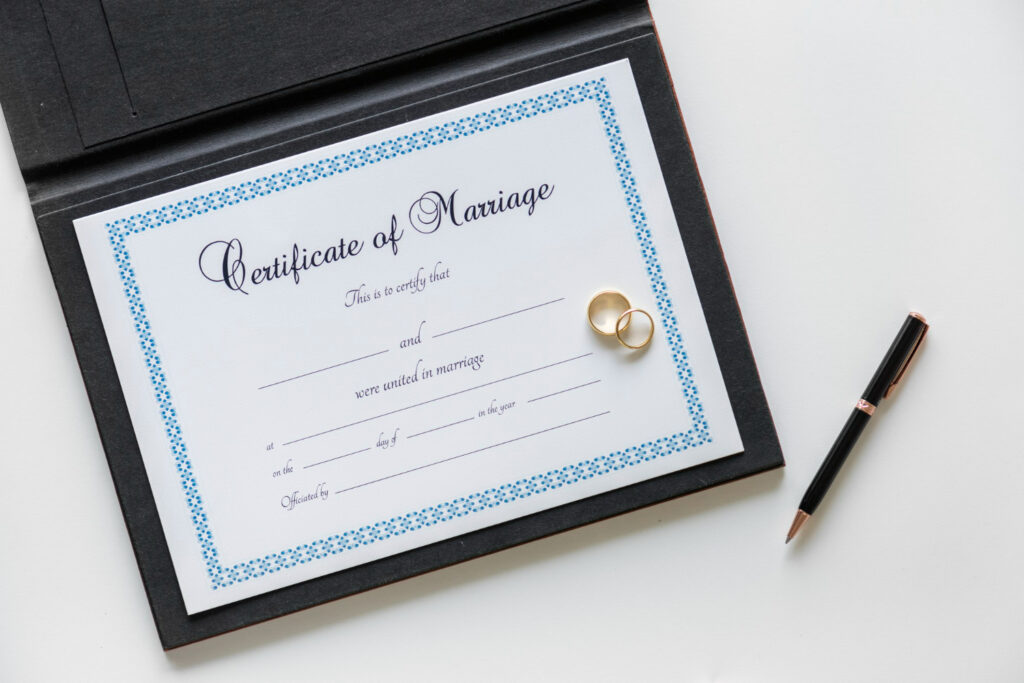Translation Requirements for Marriage Certificates

Navigating the complexities of legal documentation can be daunting, particularly when it involves documents as vital as marriage certificates. When these documents are required in a language other than their original, accurate and compliant translations are essential.
This article delves into the requirements and considerations for marriage certificate translation in the UK context, offering guidance for individuals and professionals alike.
Importance of Accurate Translation
The translation of marriage certificates holds significant importance due to its legal and personal implications.
It is not merely a matter of converting words from one language to another; it involves ensuring that the translated document precisely reflects the details and legal standing of the original. This accuracy is crucial for various purposes, such as immigration, legal proceedings, and official records.
Legal Requirements
In the UK, any translated document that is to be used for official purposes must meet certain legal standards. This includes marriage certificate translations. The translated document must be a true and complete representation of the original. Additionally, it must be certified by a qualified translator or a translation company that attests to its accuracy.
Certification Process
Certification involves the translator or the translation agency providing a signed statement declaring that the translation is an accurate and true representation of the original document. The statement must include the date, the translator’s credentials, and contact information.
This certification is often required by government bodies, legal entities, and educational institutions to verify the authenticity of the translation.
Choosing a Translation Service
Selecting the right translation service is vital. It is recommended to use professional translators who are experienced in legal document translation and are familiar with the nuances and terminologies specific to marriage certificates.
The translator should ideally be a member of a recognised professional body, such as the Institute of Translation & Interpreting (ITI) or the Chartered Institute of Linguists (CIOL) in the UK.
Factors To Consider
- Accreditation: Ensure the translator or agency is accredited and recognised by relevant authorities.
- Experience: Check their experience in translating marriage certificates and other legal documents.
- Confidentiality: The service should guarantee the confidentiality of your documents.
- Turnaround Time: Consider the time frame for the translation, especially if it is needed urgently.
Cultural Sensitivity and Accuracy
Translation of marriage certificates requires sensitivity to cultural nuances. Certain terms and concepts may not have direct equivalents in another language. Skilled translators navigate these challenges, ensuring that the translation is not only linguistically accurate but also culturally appropriate.
Linguistic Challenges
Languages vary significantly in how they address names, titles, and legal terms. A proficient translator understands these differences and translates in a way that maintains the legal integrity of the document.
Common Pitfalls To Avoid
- Literal Translation: Avoid services that offer a word-for-word translation without considering context and cultural nuances.
- Unqualified Translators: Using unqualified translators can lead to inaccuracies, which might result in legal complications.
- Lack of Certification: Ensure that the translated document comes with the necessary certification.
Conclusion
The translation of a marriage certificate is a task that demands precision, legal knowledge, and cultural sensitivity. It is essential to choose a translator or agency that not only provides an accurate translation but also understands the legal requirements in the UK.
By adhering to these guidelines, individuals can ensure that their translated marriage certificates meet all necessary standards and are accepted by the relevant authorities.